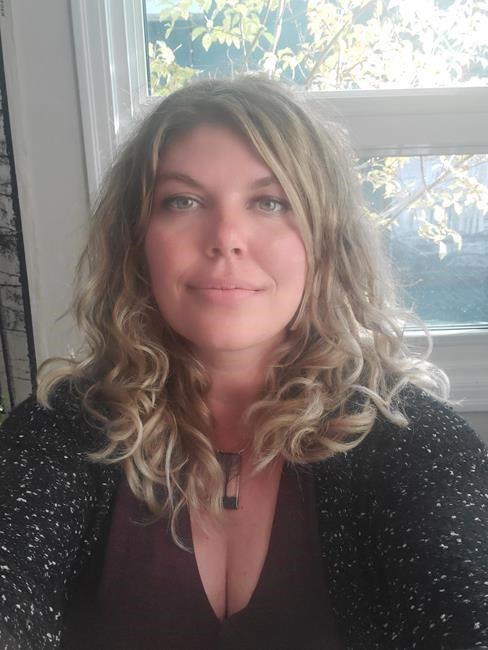Women's groups are angry that talks meant to revive a committee reviewing unresolved sexual assault complaints in Yukon have ended before its findings could be presented.
A report outlining how Mounties in the territory investigate sex assaults was to go to the federal government in March.
The Yukon Advocate Case Review committee was started in 2018 and given federal government funding and three years to look at unfounded sex assaults -- cases where police say they can't determine whether a crime occurred or was attempted, and no charges are laid.
Similar projects exist, including in Ontario and Saskatchewan, but under municipal police. The Yukon committee was the first to be run by grassroots women's advocates working with the RCMP, said Whitehorse member Aja Mason.
The group consisted of 10 women, nearly half of them Indigenous.
Last March, RCMP National Headquarters shut down the Yukon project, but there were negotiations to have it continue. They ended recently without a compromise, said Mason, who is also executive director of the Yukon Status of Women Council.
The RCMP said the project was closed over privacy concerns. Mason said the committee took many precautions so privacy wasn't breached.
She also said Mounties replaced the original group with one that uses a less transparent operating model.
Yukon has a high sex assault rate. A 2018 Statistics Canada survey found 61 per cent of both genders reported being sexually or physically assaulted after the age of 15.
Before its project was cut short, Mason said, the Yukon committee reviewed 80 unfounded cases. Due to a nondisclosure agreement, she can't say what was learned.
She said members were trying to uncover the reasons behind a low reporting rate of sex assaults in the territory and a high number of unfounded cases.
"This project was a recognition of not only the extremely high rates of sexualized violence and domestic violence that happens in the Yukon, but also (the) 25 per cent of cases where people went to the RCMP and said, 'Hey this sexual assault happened' (and) those were labelled unfounded."
The work compiled over two years won't end up on anyone's desk.
"We wanted to support (the RCMP) by helping to initiate systemic change. We want folks who are Indigenous or folks who have had bad experiences with police to have faith they'll be believed," said Mason.
She explained the project was believed to be the first to use a model in which RCMP co-operate with advocates and front-line workers to review unfounded cases.
"We had checklists for our assessment: Questions like how the actual interviews were conducted? How did the officer talk to the complainant? How old was the victim? Ethnicity of the victim?
"There were also opportunities for us to give feedback. For example, if a file contained comments that were inappropriate like, 'Oh, she was drunk again.'"
Mason said the model was endorsed by Canada’s privacy commissioner, who said privacy legislation wouldn't be a barrier.
Yukon RCMP Supt. Chan Daktari Dara said lawyers felt the committee risked breaching a part of the RCMP's Privacy Act.
"It basically says, 'The committee will not collect, retain, or disclose any personal information … further, at no time will any information leave RCMP premises or our offices."
Mason said that's not what the committee did. "We never looked at the cover sheets of the files, so we didn't know the victims. We also specifically offered to work at the Yukon detachment and not leave with any files. Our investigation process was consistent with the Privacy Act."
Dara said RCMP had been reviewing changes in the legislation when the committee got its approval. "It was basically an oversight on our part."
The RCMP reached out to the original members to join a new group with a different approach. Mason said no one from the original committee has joined.
"The RCMP are choosing which cases get reviewed, how they get reviewed, who reviews them, how the recommendations or the findings from the individual cases gets implemented at the level of the divisions that are being reviewed," she said.
Dara said that approach is being used in five other provinces and one other territory.
"From my understanding, it's working well."
The federal government provided $374,000 to fund the original committee.
"I am disappointed that an agreement could not be reached to allow this invaluable work to continue," said Public Safety Minister Bill Blair.
Ann Maje Raider, who was a committee member, said she wants Ottawa to step in and reinstate the committee.
"We want to work with the RCMP to help them fix the problem of flawed, inadequate investigations into cases of sexual assault," said Raider, who is executive director of the Liard Aboriginal Women’s Society for the Kaska Nation in Yukon and northern British Columbia.
"Our sisters and brothers who are raped and assaulted but denied justice deserve no less."
This report by The Canadian Press was first published Feb. 20, 2021.
___
This story was produced with the financial assistance of the Facebook and Canadian Press News Fellowship
Fakiha Baig, The Canadian Press



